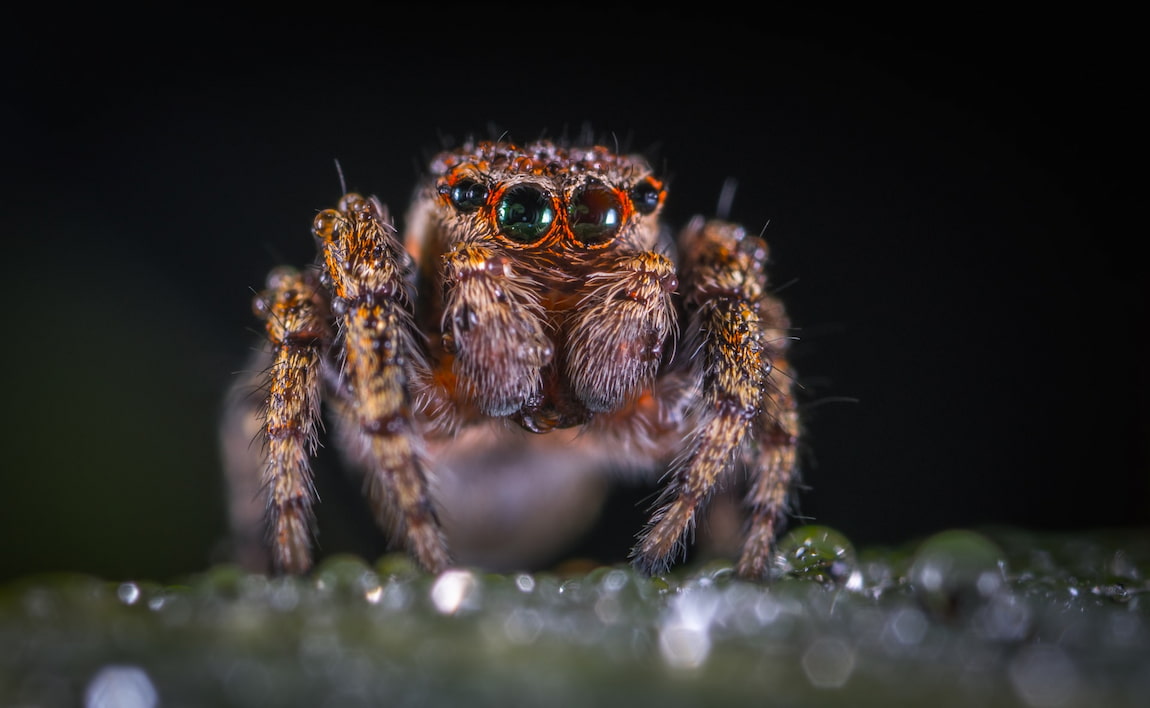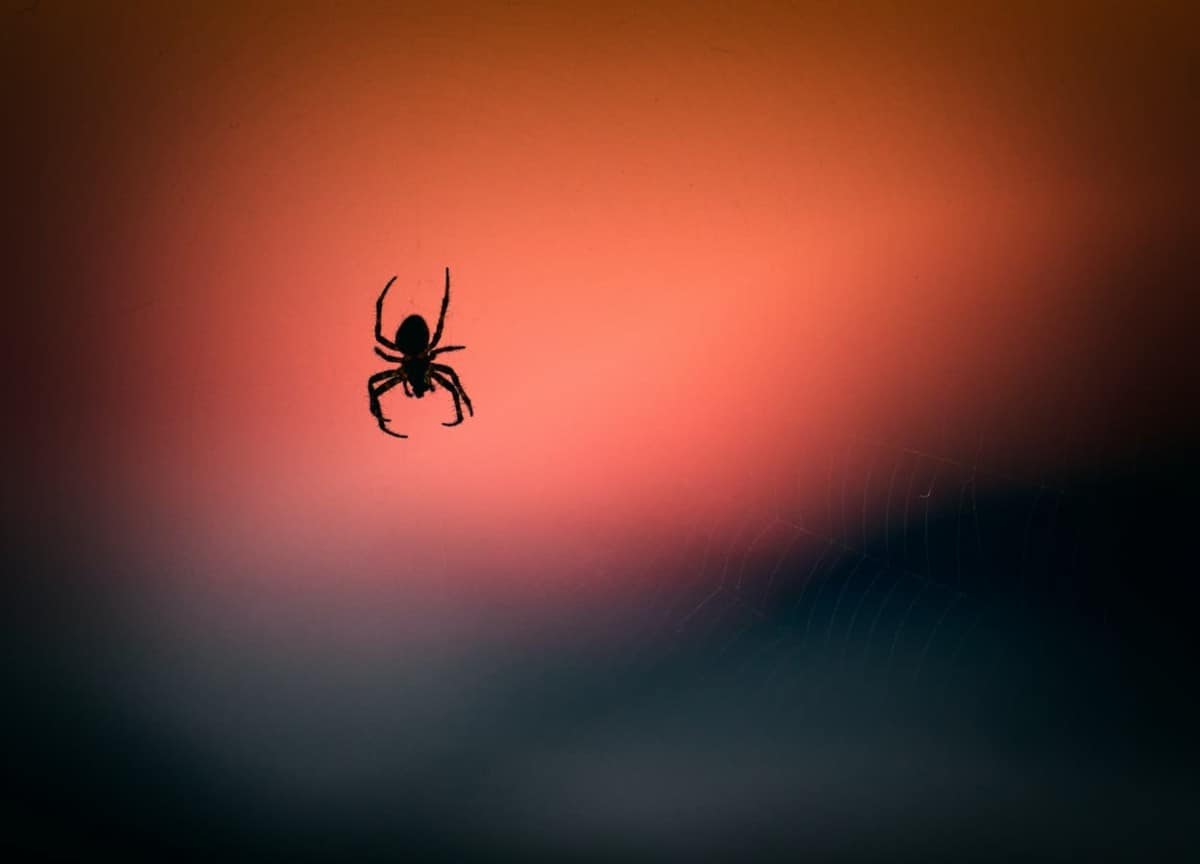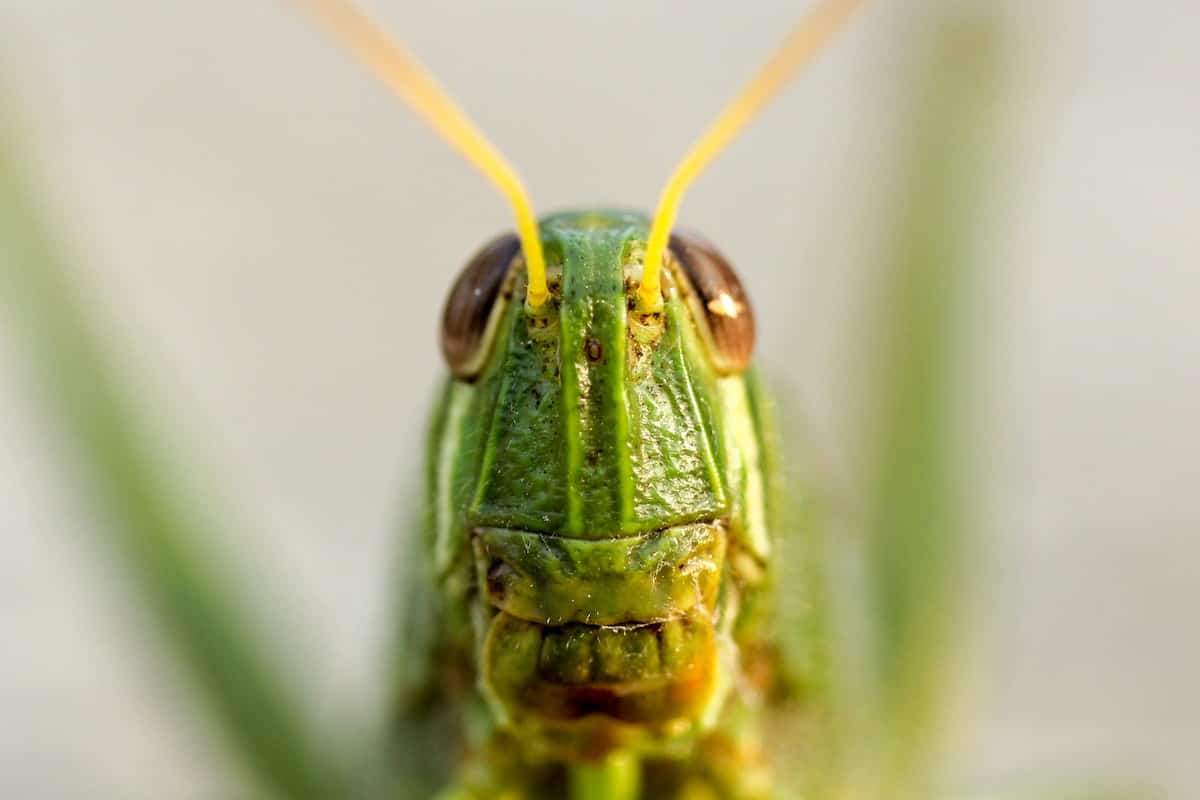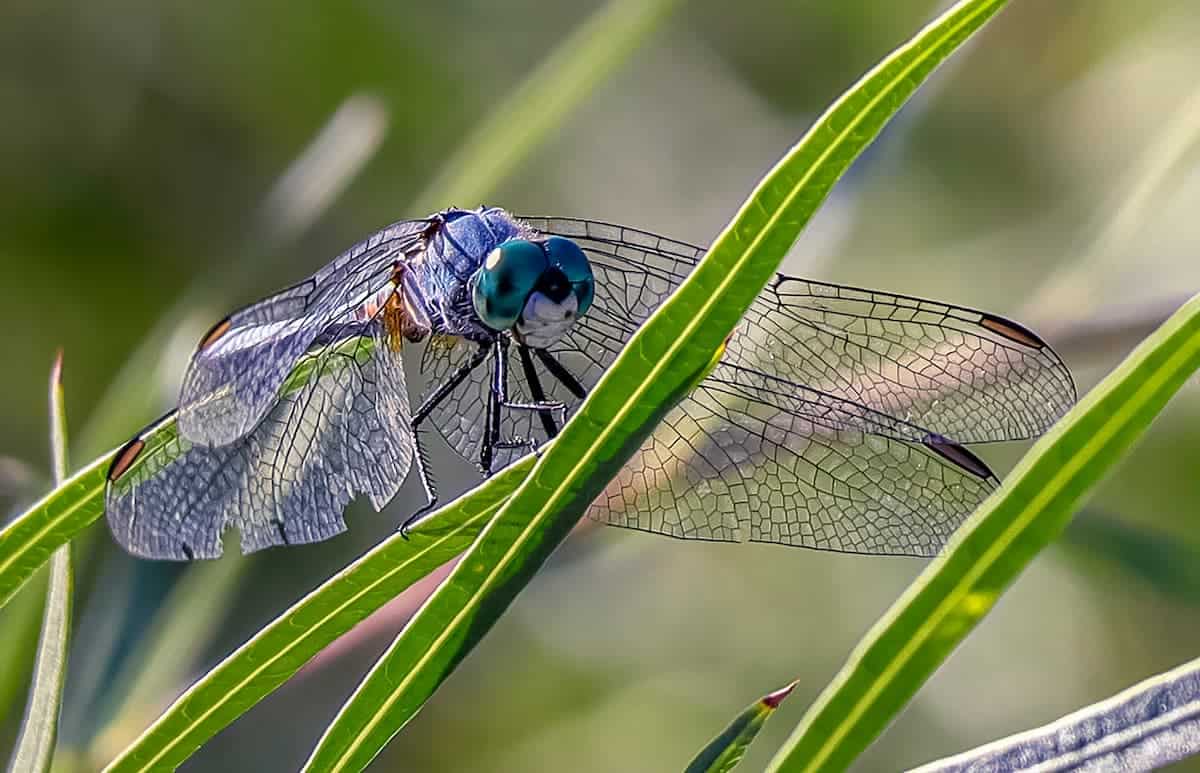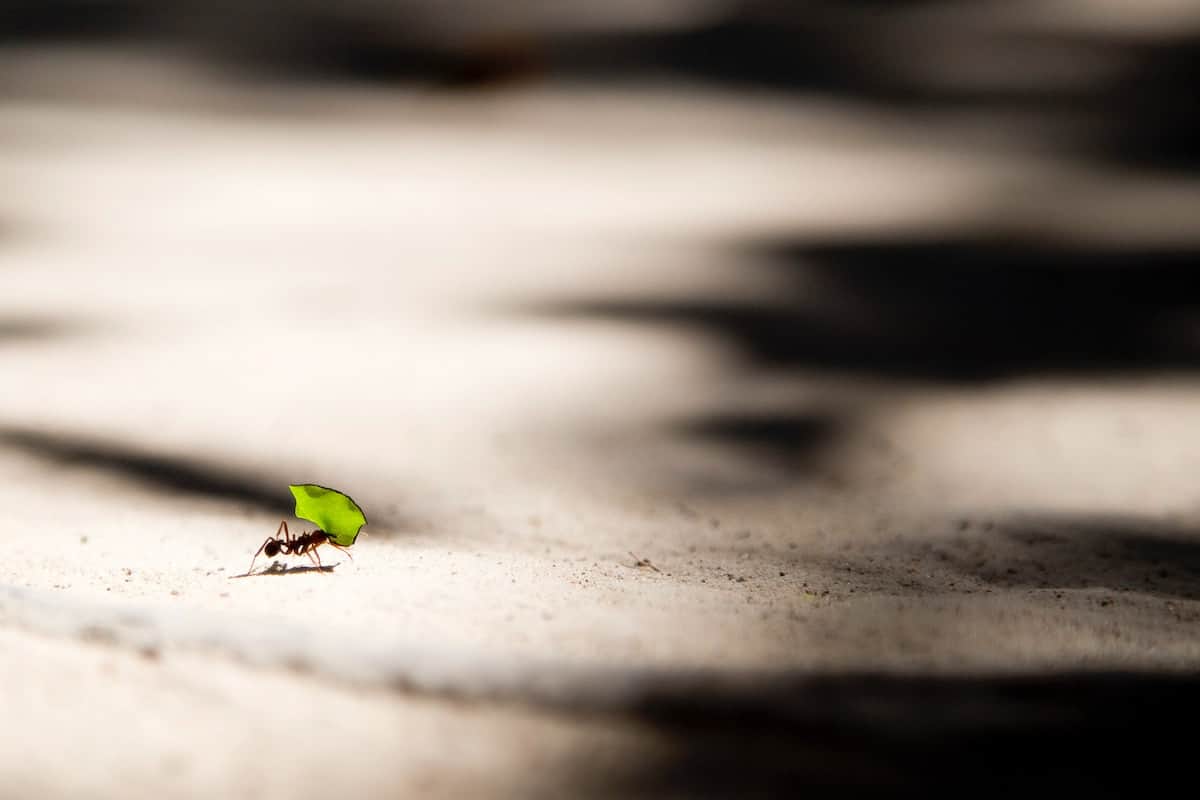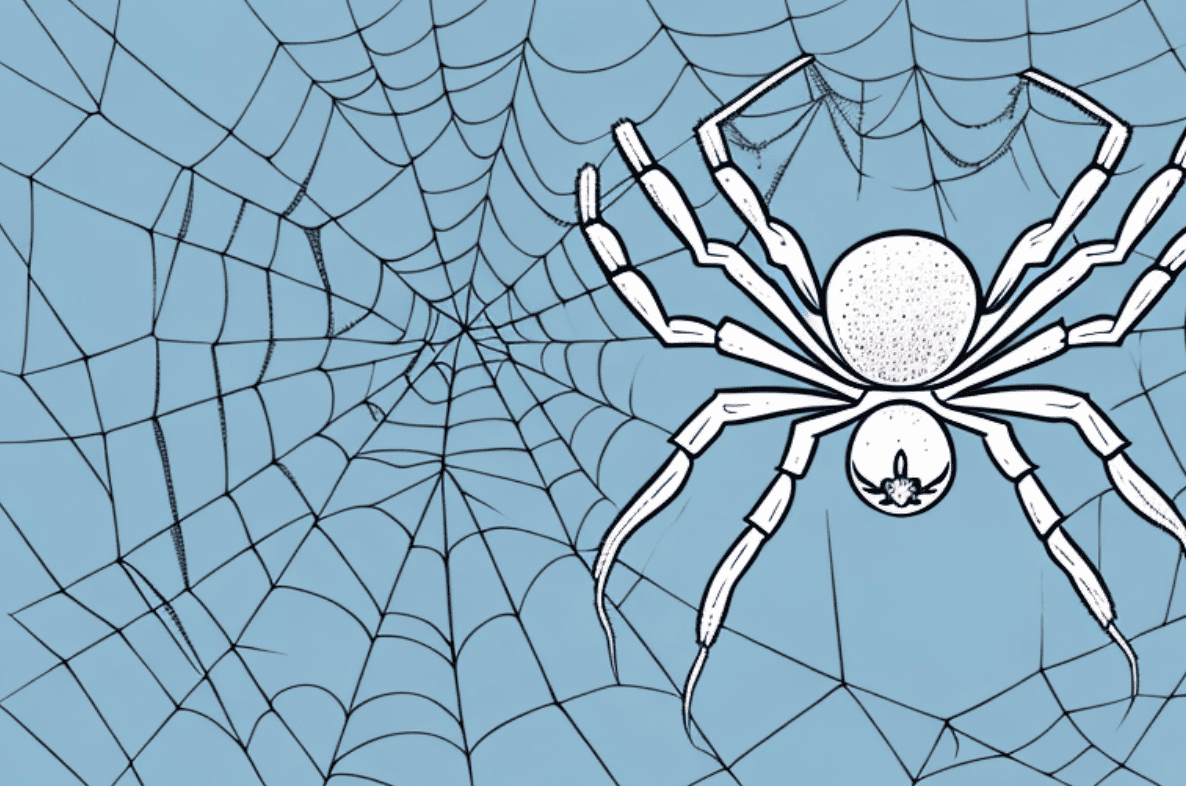If you’re wondering, “how long do spiders sleep?”, you’ve come to the right place.
For many people, the idea of a spider sleeping may be more of a relief than a cute thing to observe. While they’re not the nicest or cuddliest creatures on the planet, spiders need rest the same as every other animal and insect.
Before we dive into the question of, “how long,” we’re first going to explore whether or not a spider’s sleep is even sleep at all.
Do Spiders Sleep?
If you imagined a spider curled up in a dark corner, snoozing away with its eyes closed, try thinking again.
Spiders don’t have eyelids, so they’re always open — all of them. This might come across as a little creepy to some, but it’s nature’s way of helping the spider out (believe it or not). Unlike many animals, spiders are able to rest while remaining alert. This gives them the chance to jump into action if the opportunity to catch some food arises.
Spiders don’t sleep in the same way that humans and other sleeping species do. They regularly cycle through periods of activity and rest, but you won’t find them dreaming or snoring as you might think.
Instead of regular sleep, spiders simply go into a lowered metabolic state where they can conserve their energy and rest.
How Long Do Spiders Sleep?
Since spiders don’t sleep in the conventional sense of the word, it’s hard to put an exact number to it. As with all animals, spiders go through a circadian rhythm in which they have periods of activity followed by periods of rest. The exact amount of time that they rest depends on factors present in their environment.
To understand how sleep works for spiders, you should avoid thinking of them in the same sense as animals and humans.
Spiders’ brains are much less complex than those of humans and larger animals, so they don’t get “bored” during periods of inactivity in the same way that mammals and other species do. You can see this if you observe a spider waiting for a meal to fly into its web. You’ll likely get bored long before the spider ever does, but the spider will remain steadfast in its patience (or lack of mental capacity).
This lack of mental activity makes a spider’s sleep more like active dormancy. Imagine a spider as a desktop computer. If you click and work on it, the computer will remain awake and active, but if you leave it open and inactive for a certain period of time, it will go to sleep. Spiders sleep in much the same way.
During this “sleeping” period, spiders lower their metabolic rate in order to conserve energy and rest, while their nerves remain alert and ready to jump into action.
When Do Spiders Sleep?
No matter what the species, spiders tend to sleep whenever there is less activity. If there’s plenty of building or weaving to do and food to catch, the spider will work until it’s satisfied and then rest.
Spiders don’t sleep based on the rotation of the earth in the same way most animals do. Sunlight doesn’t play a role in a spider’s sleep cycle. But when do they sleep, then?
You can’t call spiders nocturnal or diurnal because they’re active whenever there is food to be caught. Most spiders are active at night, as that’s when all the little critters in the forest wake up and fly around. Spiders use the night time to disguise their webs, increasing the chances of them getting a catch, but it’s not uncommon to find spiders busy at work during the daylight too.
The time in which spiders sleep is solely based on the availability of food. If a spider catches a fly in its web during the day, it won’t hesitate to feast. In the same way, if nothing falls prey to a spider’s entrapment at night, it may end up going into its restful state.
Do Spiders Hibernate?
While a spider doesn’t sleep the same way as most other animals, it does respond to drastic changes in temperature and food scarcity in a similar way.
Most spiders don’t do well in cold weather, so they hibernate during the winter months of the year. Hibernating spiders find a relatively warm, secluded spot to hunker down for the cold months. During this period, their metabolic rate reduces greatly, putting them into their sleeping state, but they still may awaken to catch and eat if the chance arises.
Spiders’ bodies are not naturally capable of withstanding cold weather, so they naturally produce a chemical that works like antifreeze. This polyhydroxy alcohol works with the fluids inside a spider’s body to prevent ice crystals from forming on its inside. When the weather begins to warm back up, the spider’s body stops producing polyhydroxy alcohol and the spider comes out of hibernation.
While most spiders do everything they can to stay warm during the winter, some remain active even through the coldest months of the year. These active winter spiders stay hidden underneath leaves, setting small traps to catch unsuspecting prey.
They’re able to stay warm by utilizing the geothermal heat produced by decomposing vegetation on the ground, making it possible for some spiders to remain active through the entirety of winter.
Where Do Spiders Sleep?
Where a spider sleeps is closely connected to the species and lifestyle of the spider in question. For example, wolf spiders burrow into the ground and set trap doors to catch prey for food. To do this successfully, the spider must wait under the trap door until food comes along, but if food never comes, the spider will go into its sleeping state.
In the same way, spiders that weave webs will often rest on or around their webs so long as the weather permits.
Conclusion
Spiders are creepy and don’t always make good pets, but they’re extraordinary when it comes to sleeping. Spiders are the champions of keeping a rolling sleep schedule. If there’s food, they’re awake; if there’s not, they’ll sleep until there is.
